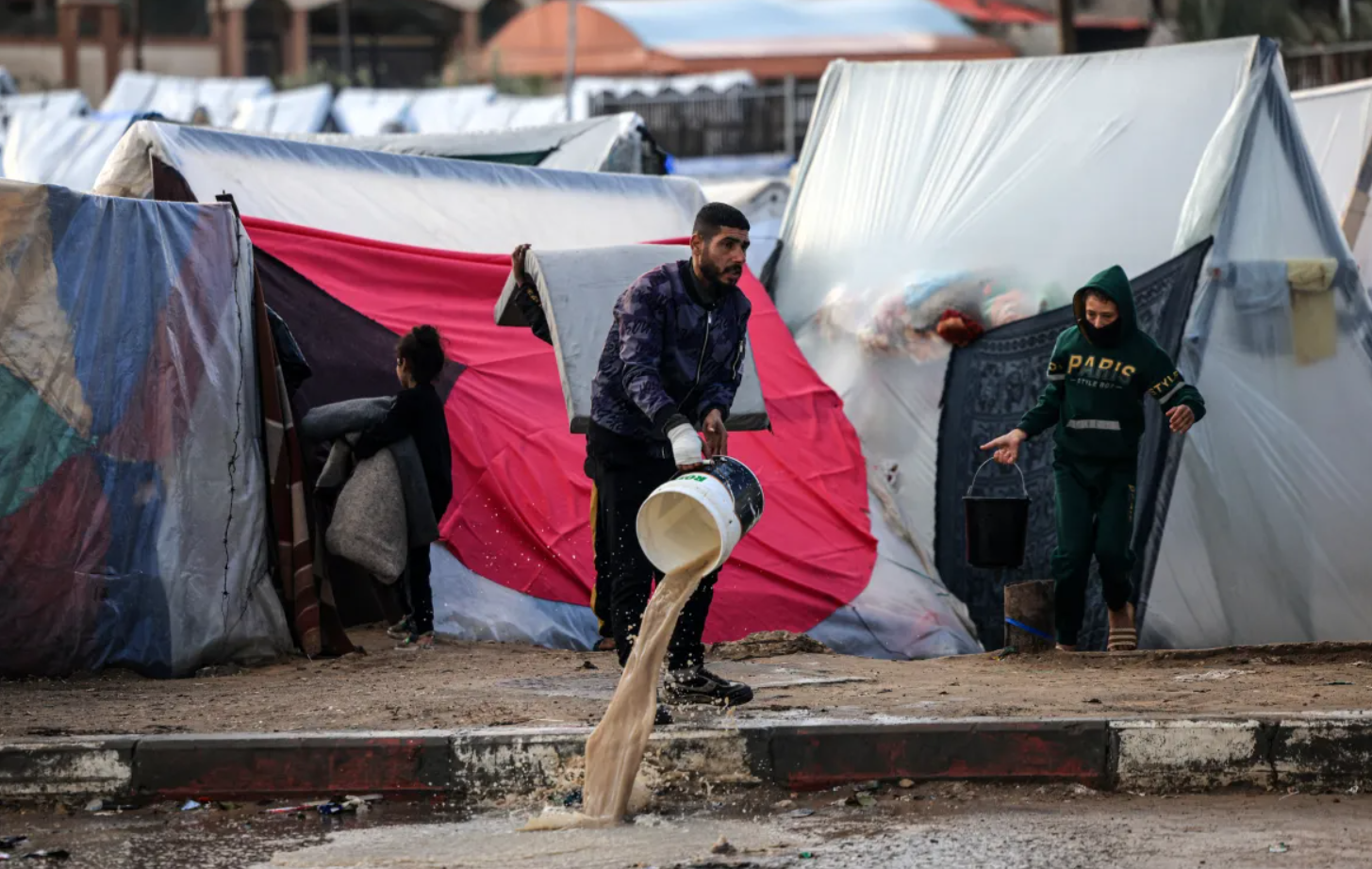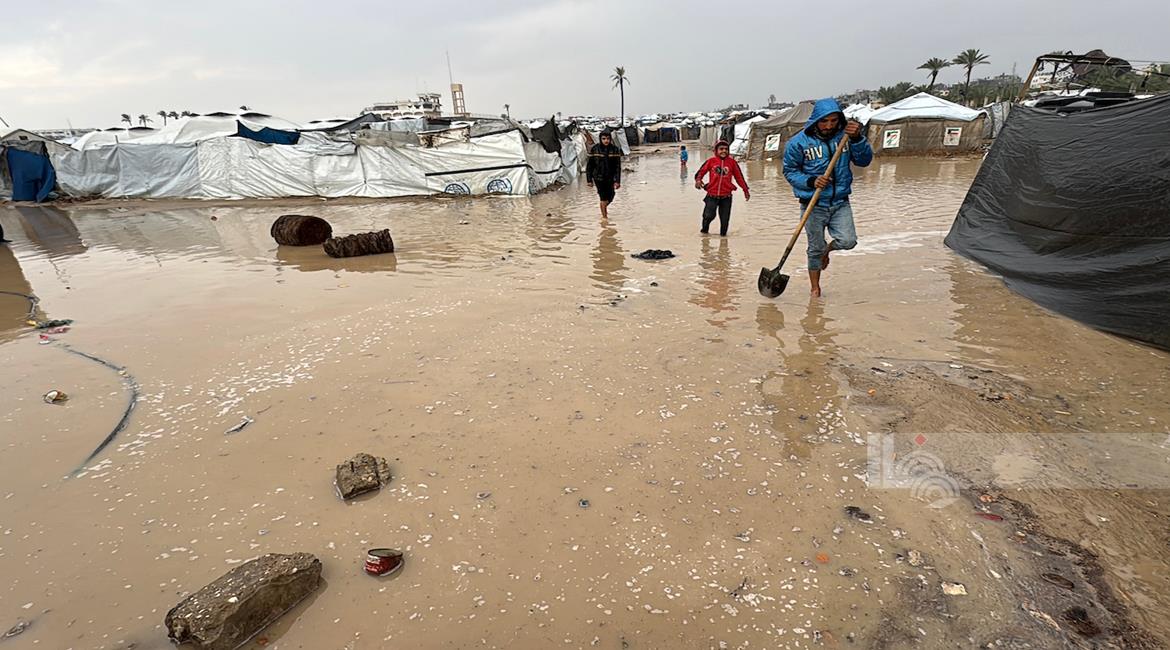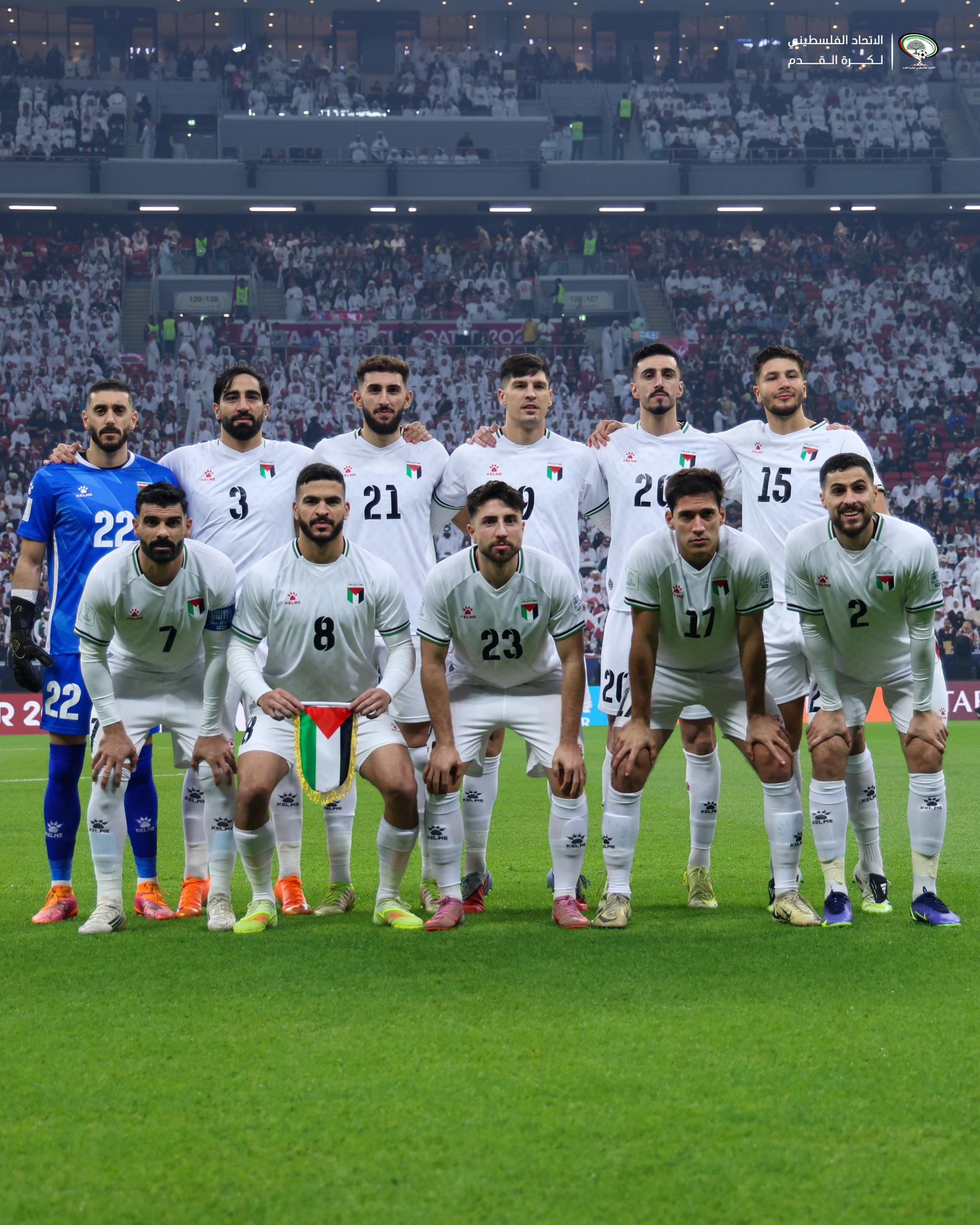By Hatem Abu Daqqa
GAZA, December 14, 2024 (WAFA) – For 14 months, the people of Gaza have endured an unrelenting and brutal assault by Israeli forces, an onslaught that has destroyed homes, shattered lives, and forced thousands of families to flee.
As winter rains batter the coastal region, the plight of the displaced in Gaza grows more dire, with their flimsy tents failing to protect them from the cold, and the rising sea threatening to swallow them whole.
Among the many affected is Sanaa Abu Lahya, a displaced woman from the town of Al-Qarara, who spoke to WAFA about the agony of living in the wake of the destruction wrought by Israel’s continued bombardment.
Her family, like so many others, was forced to abandon their home when it was reduced to rubble by Israeli airstrikes. Now, along Gaza’s coastline, Sanaa and her family live in constant fear—not just of the waves and rain, but of the memories of their lost homes.
"The displaced along the beach are like the living dead, existing in a state of suspended life. We endure the bitter cold, and the rising sea waves threaten to pull our tents into the water," Sanaa said.
Her voice trembled as she recalled the suffering of her 75-year-old husband, Mohammad Abu Lahya, who has a medical implant in his right leg after an injury sustained two years ago.
The trauma of the war was compounded by the harsh winter. "Last night, I didn’t sleep a wink. The wind howled, the rain poured, and the sea’s waves rose high, nearly swallowing our tent."
The destruction of Gaza, caused by Israel’s genocidal onslaught, has left hundreds of thousands homeless, and the displaced face a daily battle against the elements. With no choice but to take refuge along the sea, families live in shelters that offer no protection from either the harsh winter cold or the waves that creep ever closer.
Sanaa shared her deep frustration with the aid organizations that had visited her and others like her. "They promised to give us new tents and relocate us to safer areas, but nothing has changed. They left us here to fend for ourselves," she said. The broken promises only add to the burden that displaced families carry.
A few meters away, we found an abandoned tent, its owner forced to leave after the first drops of rain. With nowhere else to turn, he sought shelter with relatives, knowing that his tent, ravaged by the weather, was no longer safe.
As the day began, displaced resident Ahmad Elewa, 40, worked tirelessly to rebuild sand barriers that had been washed away by the rising tide. "The situation keeps getting worse with every storm," Elewa said, his face etched with exhaustion. "Our tents, already worn out, can't withstand the rain or the rising sea levels. This will only get worse. If things continue this way, we will face a disaster, and hundreds will die on this beach."
Elewa, like many of the displaced, fears the dangers posed by the sea. "Some of the older residents remember when the tide once reached all the way to Al-Rashid Street. The ocean has always been a threat, but now it feels like it’s closing in on us. And we’re trapped between the sea and the aftermath of the war," he added.
The fear of the sea is not the only terror that these families face. They are also haunted by the brutal violence they fled. For over a year, Israel’s relentless bombardment has not only destroyed homes but has also devastated the infrastructure, leaving nothing but rubble in its wake.
Families who once lived in homes are now living on the edge, trying to survive in makeshift tents, constantly under the threat of both nature and military aggression.
"The beach, once a place of peace, has now become a living nightmare," Elewa continued. "We fled our homes when they were bombed, only to find ourselves trapped here, unable to escape the fear of the waves or the violence that forced us from our homes in the first place."
The displaced families of Gaza, particularly those along the beach, live in a constant state of vulnerability. They are caught between the ravages of an ongoing war, the relentless pressure of the elements, and the cruel indifference of promises that go unfulfilled. With winter storms upon them and the sea rising ever higher, they continue to wait for help that never arrives, their lives hanging in the balance.
Elewa called on international organizations and the global community to urgently intervene. "We need alternative shelters, safer places away from the sea. The ocean has become a nightmare, a constant reminder of the violence we fled. We cannot live like this anymore," he said, his voice filled with desperation.
As the world watches, the displaced in Gaza continue to suffer, not only from the violence of war but from the relentless forces of nature. Their survival depends on more than just a change in the weather—it requires a change in the world’s response to their suffering. Until then, they remain trapped between the sea and the scars of an ongoing war that shows no sign of ending.
--
M.N













